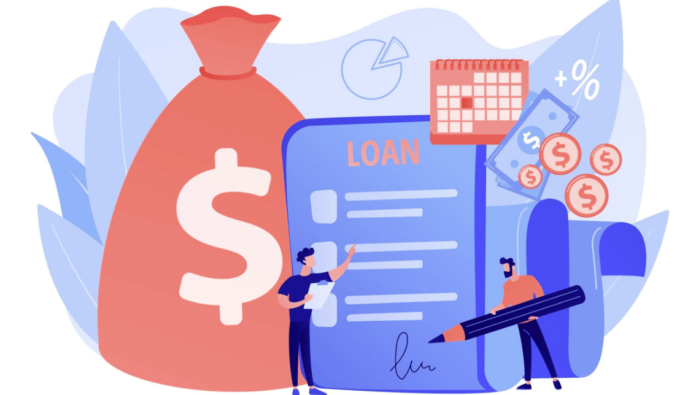In today’s world, loans have become integral to our financial lives. Whether it’s for purchasing a home, funding education, or starting a business, loans offer a financial lifeline. However, the cost associated with loans can be a burden that many borrowers wish to alleviate. Your how can you reduce your total loan cost without sacrificing your financial goals or peace of mind.
1. Shop for the Best Interest Rates
The interest rate is one of the most significant factors impacting your loan cost. A fraction of a percentage point So, do your homework. Compare interest rates offered by various lenders.
2. Improve Your Credit
The interest rate you’ll be offered. To improve your score, pay bills on time, reduce credit card balances, and correct any errors on your credit report.
3. Consider a Shorter Loan Term
While longer loan terms may offer lower monthly payments, but they often increase overall interest costs. Opt for a shorter loan term if your budget allows. This can significantly reduce your total loan cost.
4. Make Extra Payments
Whenever possible, make extra payments towards your loan principal. Reducing the total interest you’ll pay and shortening the loan term.
5. Refinance Your Loan
If interest rates have dropped since you first obtained your loan, consider refinancing. Refinancing at a lower rate can lead to substantial savings over the life of the loan.
6. Avoid Prepayment Penalties
The loan early. Be sure to understand your loan terms and avoid loans with such penalties, or negotiate to have them removed.
7. Use Windfalls Wisely
If you receive unexpected windfalls, such as a tax refund or a work bonus, consider using a portion of it to pay down your loan. This can significantly reduce your loan balance and interest costs.
8. Pay Attention to Fees
In addition to interest rates, be mindful of any fees associated with your loan. Shop for loans with minimal origination fees or other hidden charges.
9. Consider Biweekly Payments
Making half of your monthly payment every two weeks results in an extra annual payment, helping you pay off your loan faster.
10. Keep an Eye on Variable Rates
If you have a loan with a variable interest rate, be prepared for potential rate increases. Monitor the market and consider refinancing into a fixed-rate loan if rates start to rise.
11. Seek Professional Advice
Your specific situation and help you make informed decisions to reduce your loan cost.
12. Explore Loan Forgiveness Programs
If you have federal student loans, investigate loan forgiveness programs that may help reduce your loan balance or eliminate it altogether.
13. Maintain a Healthy Emergency Fund
Needing to take on more debt when unexpected expenses arise, ultimately reducing your total loan burden.
14. Track Your Progress
Finally, keep a close eye on your loan balance and the progress you’re making. Celebrate your milestones and stay motivated to achieve your goal of reducing your total loan cost. Read more…
Conclusion
How can you reduce your total loan cost is not only financially savvy but also liberating. Pay off your loans faster and free up your financial resources for the things that truly matter to you. Remember, every dollar saved on loan costs is a dollar that can be invested in your future.
FAQs
1. Can I reduce my loan cost without paying extra each month? Yes, refinancing to a lower interest rate can lower your loan cost without making extra payments.
2. Will improving my credit score really make a difference in my loan cost? Absolutely.which can significantly reduce your loan cost.
3. Are there any government programs to help reduce loan costs? Yes, various loan forgiveness and repayment assistance programs exist, especially for federal student loans.
4. How often should I check my credit report for errors? It’s advisable to check your credit report at least once a year to catch and correct any errors.
5. What’s the best strategy for paying off multiple loans? Start by paying off high-interest loans first and consider consolidating or refinancing to simplify your repayment plan.

